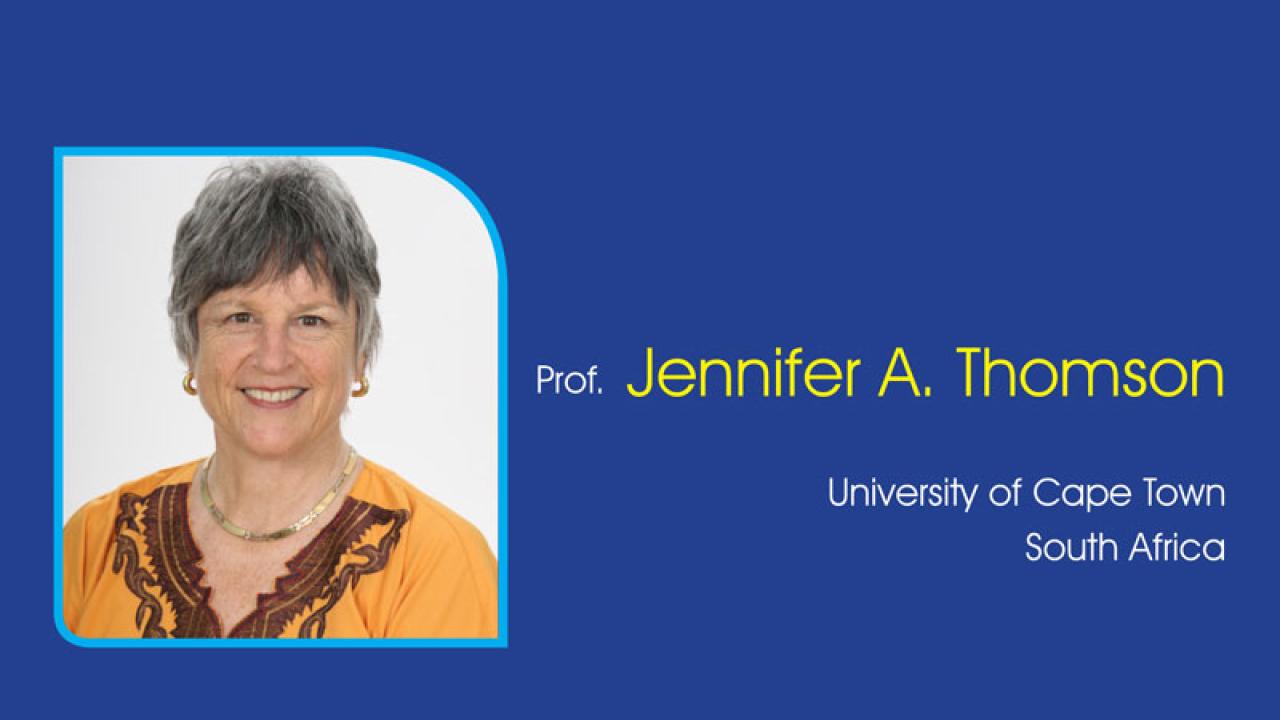
Today ICTP is pleased to host Professor Jennifer Thomson for an ICTP Colloquium entitled "The Pros and Cons of Genetically Modified Crops." Thomson's research field is the development of genetically modified maize resistant to the African endemic maize streak virus and tolerant to drought.
The Colloquium will take place Wednesday, 21 February, 2018, at 16:30 hrs in the Budinich Lecture Hall, Leonardo Building, ICTP. The event will be livestreamed on ICTP's Facebook and Youtube pages.
Professor Thomson is Emeritus Professor in the Department of Molecular and Cell Biology at the University of Cape Town. She obtained her PhD at the Rhodes University, a post-doctoral fellowship at Harvard, was Associate Professor in Genetics at the University of the Witwatersrand, visiting scientist at MIT, and Director of the Laboratory for Molecular and Cell Biology for the CSIR, before becoming Head of the Department of Microbiology at UCT in 1988. She won the L’Oreal/UNESCO prize for Women in Science for Africa in 2004 and has an Honorary Doctorate from the Sorbonne University. Prof. Thomson serves on the National Advisory Council on Innovation of the South African Minister of Science and Technology.
She is the President of the Organisation for Women in Science for the Developing World (OWSD) and chairs the South African chapter. She is a newly elected fellow of TWAS, and is in Trieste for the OWSD Annual Meeting.
The year 2015 marked the 20th year of the commercialisation of genetically modified (GM) crops. It is one of the fastest adopted crop technology in recent times, with huge economic gains, which have divided roughly half and half between farmers in developed and developing countries. The environmental benefits include contributing to the practice of minimal till agriculture and a decrease in the use of pesticides. But what are the downsides of this technology? Professor Thomson will review the pros and cons of genetically modified crops, and consider GM crops that are in the pipeline of benefit to developing countries and whether any of these are likely to be commercialised in the foreseeable future.
Light refreshments will be served after the talk, and all are very warmly invited to attend, in person and online.
















